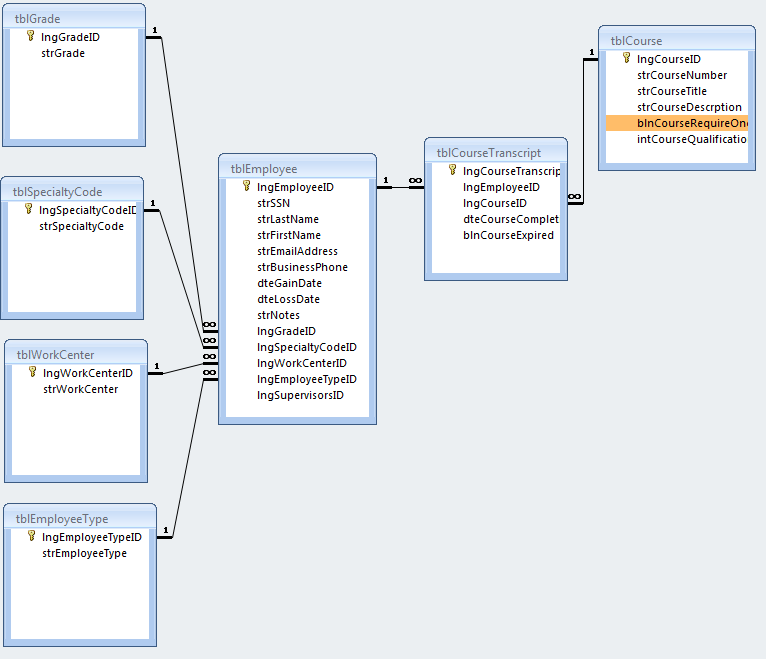Good afternoon everyone,
I am trying to figure out the best solution for the following database. Any comments would be appreciated.
The product will track recurring training.
The part that I need suggestions is this.
For simplicity, let's say the org has 20 employees and there are 20 training classes.
Givens:
(1) All employees will have to do some of the classes.
(2) Some clasess will be one time only
(3) Some classes will require reccurence.
I really believe I need just one more table but for the life me can figure out how to best implement it. Taking normalization into account.
The table that holds the required classes for for each employee.
I've attached a pic of the data model I currently have.
Thanks in adv.



